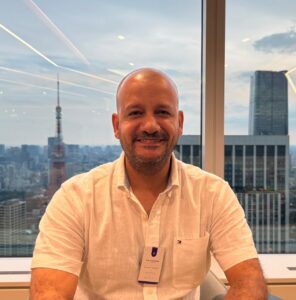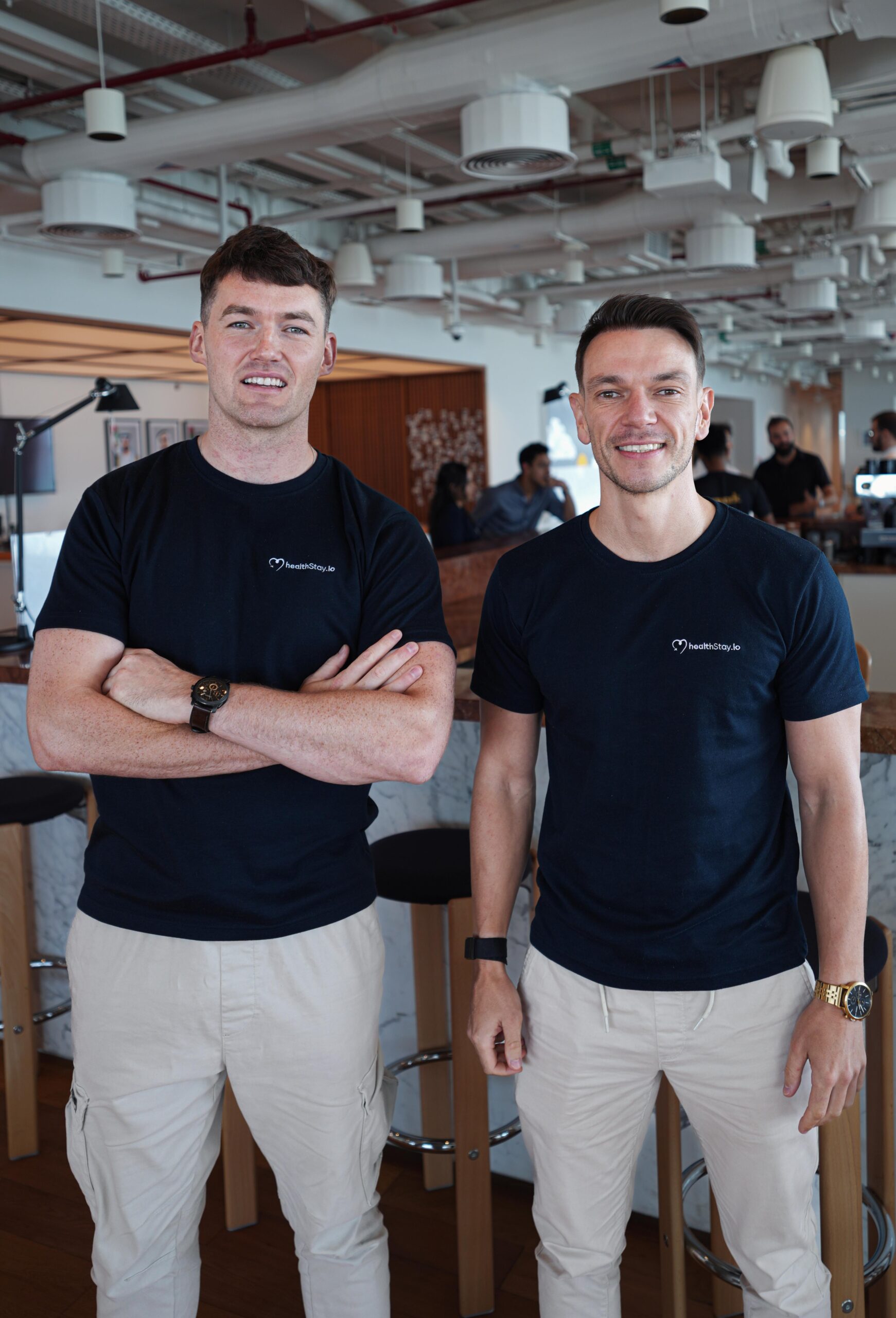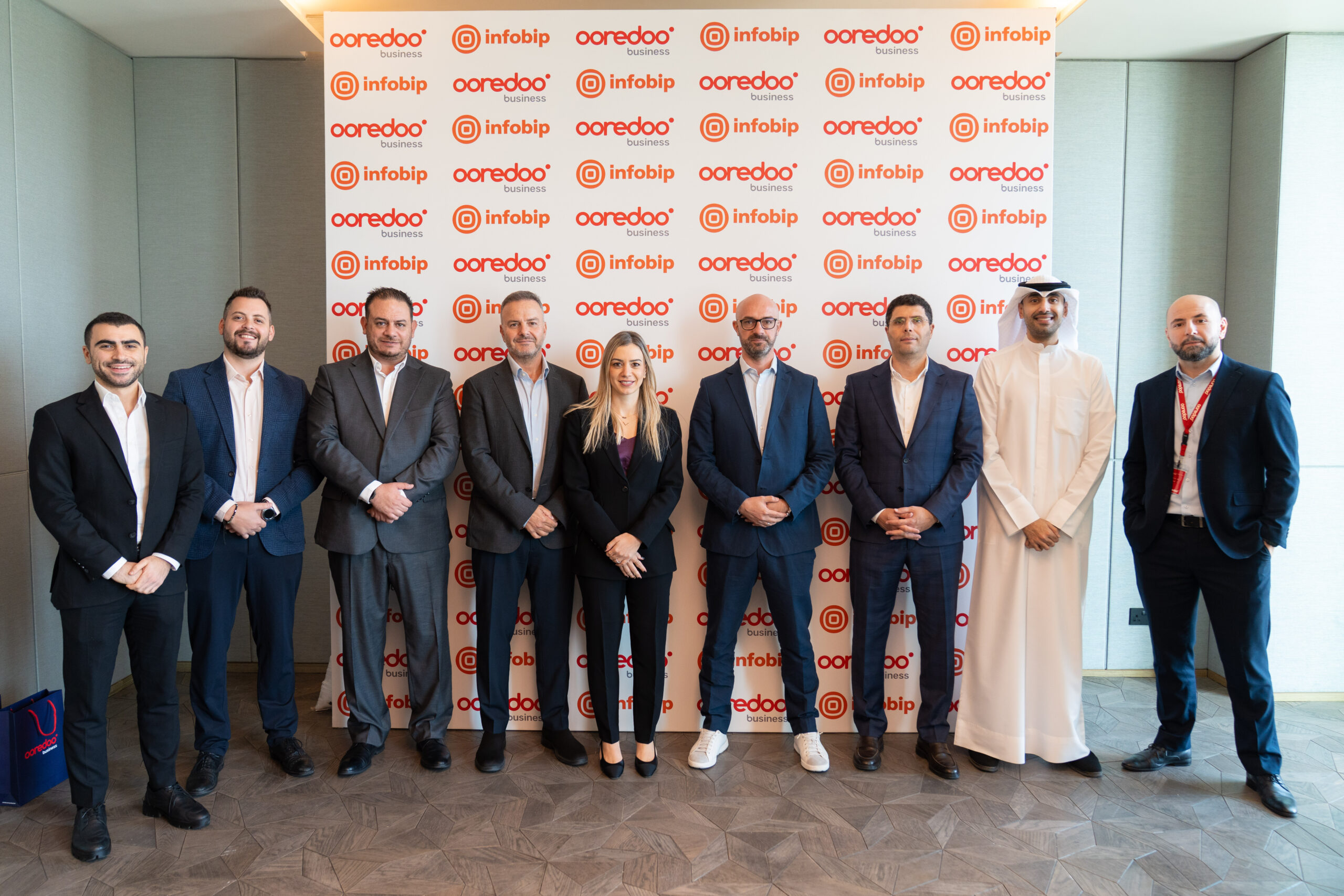Exclusive: Health-Tech Rising with Four Startups Redefining Care Access and Connection

The health industry is undergoing one of the most significant transformations in its history. Across the globe, technology-driven solutions are addressing gaps that have long challenged healthcare systems: fragmented patient journeys, inefficient procurement, stalled rehabilitation, and the struggle to balance innovation with humanity. Nowhere is this shift more visible than in the work of health-tech startups that are daring to rethink care from the ground up.
In the Middle East and Africa, as well as internationally, new ventures are tackling systemic challenges with approaches that merge digital intelligence with human-centred design. From transparent procurement platforms to AI companions, from seamless medical tourism software to gamified rehabilitation tools, these innovators are placing accessibility, trust, and patient experience at the heart of their solutions.
This feature explores four such companies — Surgia, Healthystay.io, Hlthera, and NeuroBLAST — each carving out a unique role in reshaping healthcare. Together, their stories point toward a future where technology is not a barrier between patients and providers but a bridge that brings them closer together.
Surgia: Building Trust in Procurement
In many regions across Africa and the Middle East, healthcare providers face an uphill battle when sourcing equipment. From fragmented supply chains to counterfeit products, the procurement process is riddled with inefficiencies that directly impact patient care.
“Healthcare providers across Africa and the Middle East face several structural challenges in sourcing medical equipment: limited access to trusted suppliers, fragmented procurement processes, high dependency on intermediaries, and the influx of counterfeit or substandard products,” explained Ahmed Yahia, CEO and Founder of Surgia. “Additionally, SMEs and small clinics often lack the financial flexibility and procurement expertise of larger hospital groups.”

Surgia set out to tackle these problems by creating a transparent, AI-powered marketplace that connects healthcare facilities directly to verified suppliers. It is more than a marketplace; it is a procurement ecosystem that integrates inventory management, financing options, and product traceability into a single platform.
“Trust and transparency are at the core of SURGiA’s platform,” Yahia said. “Every product on our platform is sourced from vetted suppliers and verified through serialization, certifications, and authenticity checks. Our platform provides full procurement traceability, from supplier selection to product delivery—along with analytics that empower healthcare providers to track usage, expiry, and reorder levels in real time.”
For small clinics, this represents more than convenience; it is about empowerment. While large hospital groups have traditionally benefited from purchasing power, smaller facilities often struggle to compete. Surgia levels this field.
“We aggregate demand from smaller providers, enabling them to benefit from collective purchasing power typically reserved for large hospital groups,” Yahia explained. “We also provide embedded financing solutions tailored to SMEs, including BNPL (Buy Now Pay Later) and third-party credit, directly integrated into the platform.”
By doing so, Surgia allows smaller providers to plan smarter, reduce costs, and ensure consistent supply of essential equipment. This empowerment is essential in regions where small and mid-sized facilities form the backbone of healthcare delivery.
Looking ahead, Yahia sees procurement evolving rapidly: “Over the next five years, we foresee a shift toward predictive procurement, AI-assisted decision-making, and greater regional collaboration to reduce over-reliance on global imports. SURGiA is actively building this future by investing in a regional logistics hub in Dubai and integrating predictive analytics to help providers anticipate needs based on patient volume, seasonal trends, and inventory cycles.”
By turning procurement from a reactive, fragmented process into a proactive and data-driven system, Surgia is laying the foundation for a healthcare environment where providers can focus less on sourcing and more on delivering care.
Healthystay.io: Fixing the Chaos of Medical Tourism
Medical tourism has long promised patients access to affordable, high-quality treatment abroad. Yet the industry has often been plagued by delays, miscommunication, and opaque processes that erode trust. Patients can wait weeks for cost estimates, while hospitals juggle administrative inefficiencies that leave little room for quality care.

This is the pain point that Healthystay.io has built its solution around. By simplifying and unifying the journey for hospitals and patients alike, the company is reimagining medical tourism as something seamless, precise, and patient-centred.
“Medical tourism has traditionally been fragmented, with patients often waiting up to two weeks just to receive a treatment plan and cost estimate,” said Ruairi Tubrid, co-founder of Healthystay.io. “HealthStay.io transforms this by cutting the process down to 24 hours through automation and AI-driven workflows on the hospital side. For patients, our secure customer portal centralizes every step of the journey—payments, travel bookings, treatment plans, appointment details, and direct communication with the hospital.”
What makes Healthystay.io stand out is its white-label model. Unlike many platforms that place themselves between patient and provider, Healthystay.io’s software operates invisibly under the hospital’s brand identity.
“Patients never see our brand,” added Sean Conaty, co-founder. “Instead, everything is delivered under the hospital’s own identity. Behind the scenes, our software automates up to 90% of hospital workflows, from inquiry management to documentation and follow-ups. This frees up hospital staff to focus on what truly matters: delivering world-class care.”
Trust, they argue, is built on transparency and consistency — and that is where data plays a transformative role.
“Our software leverages data and technology to improve transparency, accuracy, and speed at every stage of the patient journey,” Tubrid explained. “Hospitals gain reliable insights for evaluations and resource allocation, while patients receive faster, clearer, and more consistent information.”
By enabling hospitals to respond faster and more efficiently, the platform builds long-term trust with patients who are often making life-changing decisions.
Looking forward, Healthystay.io’s founders believe medical tourism platforms will evolve not into consumer-facing marketplaces but into empowering backbones for providers. “We believe the future of medical tourism platforms is less about being a marketplace and more about empowering providers,” Conaty said. “By equipping hospitals with the right tools, we’re helping redefine access to global healthcare—making it more efficient, transparent, and patient-centered while giving hospitals the infrastructure to compete internationally.”
Hlthera: Where AI Meets Humanity
Artificial intelligence is increasingly being deployed in healthcare, from chatbots to diagnostic tools. But many of these solutions leave patients feeling more like case numbers than human beings. Hlthera, however, has set out to build a platform where technology quietly fades into the background and care feels genuinely human again.

“We believe healthcare should feel like a way of life, caring for the emotional, mental, and physical aspects of every person, not a system of transactions,” said Nader Nassar, Founder and CEO of Hlthera. “That begins with redefining the language itself: doctors are healers, hospitals are health centres, and friendships are circles.”
Hlthera integrates features designed to create a sense of belonging and recognition. In the Lounge, users can share openly, even anonymously. With Harmony Rewards, everyday acts of wellness — from a walk to a reflection — are acknowledged and celebrated. And with Engage, finding the right healer becomes immediate and personal.
“Here, technology quietly fades into the background,” Nassar said. “What remains is trust, compassion, and connection. Hlthera makes healthcare feel human again — not as something you endure, but as a circle you belong to.”
At the heart of this experience is Xyra, Hlthera’s AI health companion. Unlike conventional AI tools that react to questions, Xyra learns, anticipates, and adapts to a user’s lifestyle over time.
“Xyra was created to feel less like technology and more like intuition,” Nassar explained. “It listens, understands, and grows with you. Over time, it begins to sense what you need before you even put it into words.”
What makes Xyra unique is how it blends intelligence with empathy. Every small action taken by users becomes meaningful progress. “Through Harmony Rewards, a walk, a reflection, or a moment of self-care becomes part of your progress. Every action is noticed. Every step is celebrated,” Nassar said.
Beyond individuals, Hlthera also seeks to bridge a structural gap: the disconnection between healthcare providers and patients’ everyday lives. “Healthcare is powerful inside hospitals, but life, wellness, and healing continue far beyond their walls,” Nassar noted. “Hlthera was created not just to close that gap, but to build a connected ecosystem where care flows seamlessly across emotional, mental, and physical needs.”
This vision is underpinned by a strong commitment to ethics. “Privacy and trust are not features; they are fundamental human rights,” Nassar emphasised. “Every conversation with Xyra is encrypted, every record is secure, and data is never sold. Protection alone is not enough; healthcare technology must also give something back.”
With its philosophy of ethical AI and connected care, Hlthera is redefining what it means to make healthcare not just accessible but deeply personal.
NeuroBLAST: Making Rehab Continuous and Fun
For many patients, rehabilitation is a journey marked by frustration. After clinical sessions end, progress often stalls, motivation wanes, and gains are lost. This challenge is particularly personal for Marija Grujic, Co-Founder and CEO of NeuroBLAST, who lives with multiple sclerosis (MS).

“As someone living with MS, I know firsthand how quickly progress fades without regular training,” she said. “NeuroBLAST was built to solve exactly that problem — continuity.”
NeuroBLAST provides a suite of at-home rehabilitation devices — a wireless motion controller, a pressure-sensing balance board, and a custom tablet preloaded with interactive exercises. Together, they transform rehabilitation into a daily routine that feels less like therapy and more like play.
“Rehab exercises are usually repetitive and hard to stick with,” Grujic explained. “By turning them into interactive games, we give both children and adults a reason to keep going, because it feels engaging, not clinical.”
The power of gamification lies in motivation. For children with cerebral palsy, exercises blend into playtime. For adults with MS or recovering from injuries, therapy becomes something to look forward to rather than endure. “That shift in mindset makes all the difference for long-term motivation,” Grujic added.
Equally critical is accessibility. Traditional rehabilitation often requires costly, exhausting trips to specialised clinics — a barrier for many patients. “Traveling to a clinic is expensive, time-consuming, and in many cases, physically draining,” Grujic said. “With NeuroBLAST, therapy comes to the patient. Our goal was to design something affordable compared to big clinic-only systems, so families can realistically have it at home.”
Looking ahead, Grujic envisions a hybrid model where clinics and home-based rehab work hand in hand. “I believe the future of rehab is hybrid: clinics will remain important for guidance and assessment, but the real work will happen at home, supported by smart, connected devices,” she explained. “NeuroBLAST is already moving in that direction by offering portable devices, an app store of exercises, and the ability to train anytime, anywhere.”
By making rehabilitation continuous, fun, and accessible, NeuroBLAST is helping patients regain control of their recovery journeys — one game at a time.
Conclusion: From Transactions to Transformation
Healthcare has long been defined by its challenges: fragmented systems, costly inefficiencies, stalled patient journeys, and a sense of detachment between technology and humanity. Yet the four companies explored here — Surgia, Healthystay.io, Hlthera, and NeuroBLAST — show how innovation is rewriting this story.
Surgia is creating trust in procurement, ensuring providers can source quality equipment with confidence. Healthystay.io is bringing order and precision to medical tourism, empowering hospitals to serve international patients seamlessly. Hlthera is redefining how AI can feel human, turning technology into a circle of belonging and care. NeuroBLAST is ensuring rehabilitation doesn’t fade at the clinic door but continues at home in ways that are motivating and accessible.
What unites these ventures is not just their use of technology but their commitment to human-centred healthcare. Each in its own way is building bridges: between providers and suppliers, between hospitals and international patients, between AI and everyday life, and between clinics and homes.
As healthcare continues to evolve, these examples hint at a future where technology does not replace humanity but restores it. A future where care is trusted, seamless, and deeply personal. A future where healthcare is not a series of disconnected transactions but a continuous, transformative journey.








